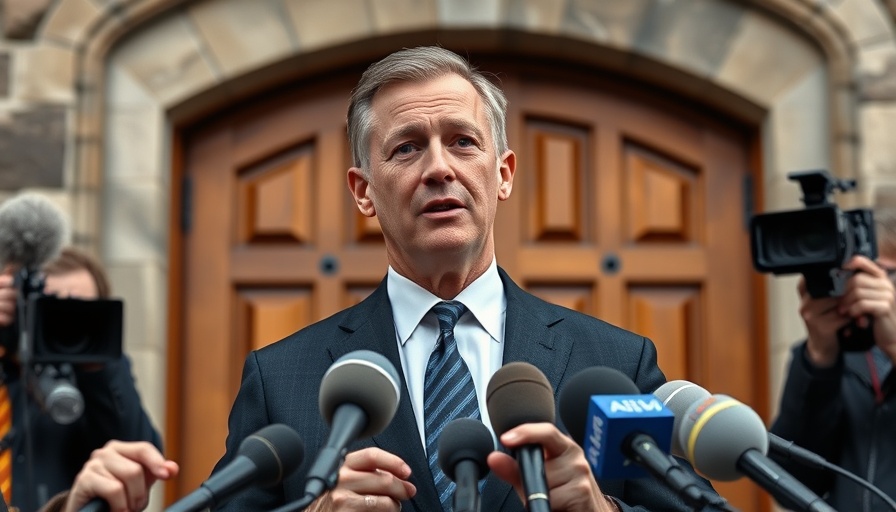
Accountability in Political Party Funding is Imperative for South Africa's Democracy
The enduring debate surrounding political party funding in South Africa reached a critical point as ActionSA lobbied for stricter enforcement and more profound accountability measures to combat corruption. The political landscape is increasingly marred by rising corruption allegations, highlighting the need for transparent funding mechanisms within the country’s democratic framework.
Understanding the Context of Political Party Funding
Political party funding has been a contentious topic in South Africa, particularly in light of issues surrounding the ANC and EFF, the historical main contributors to the political dialogue. As ActionSA's National Chairperson Michael Beaumont reiterated during a recent press conference, the current rules, such as the donation disclosure threshold of R100,000, hinder effective oversight, encouraging a culture of corruption.
The Call for Enhanced Oversight Mechanisms
ActionSA advocates for critical reforms, notably granting the Electoral Commission of South Africa (IEC) access to political parties’ bank accounts. Such access is crucial for ensuring that funds are accounted for accurately, especially when political events seem to cost millions while only a portion is declared. Beaumont pointed out the blatant discrepancies in funding disclosures, advocating for enhanced investigative powers for the IEC to enforce compliance effectively.
Future Implications of Current Funding Practices
The implications of inadequate funding transparency extend beyond individual parties. They threaten multi-party democracy itself, potentially entrenching the status quo that many South Africans are disenchanted with. As pointed out in Beaumont’s remarks, without addressing these challenges, emerging parties like ActionSA could struggle to compete on equal footing against established ones, diminishing the diversity of political representation.
Corruption and its Impact on Public Trust
The call for accountability isn't merely about financial audits; it also involves restoring public trust. In recent years, allegations of state capture and corruption investigations have tarnished the image of political entities. That lost credibility reinforces political apathy among citizens, further complicating the electoral landscape.
Counterarguments: Balancing Transparency with Privacy
However, some organizations, like My Vote Counts, argue for total transparency by demanding the disclosure of all donations, regardless of size. Critics, like Beaumont, contend this approach could inadvertently stifle political participation, as potential donors may fear repercussions from revealing their contributions, thus isolating smaller parties from necessary funding.
Actionable Strategies for Reform
To address the concerns about transparency and accountability, ActionSA suggests a framework that balances rigorous scrutiny with respect for donor privacy. Preserving confidentiality for smaller donations should be a guiding principle, while larger contributions must be transparent enough to prevent instances of corruption.
The Role of Public Engagement in the Democratic Process
Enduring accountability and transparency are vital for a healthy democracy, prompting robust citizen engagement. Initiatives aimed at educating voters about the implications of political funding can drive home the importance of remaining vigilant regarding their representatives’ financial dealings. Informed citizens are more likely to hold parties accountable, foster engagement, and demand the reforms necessary for a flourishing democracy.
As political and social dynamics evolve, so must the mechanisms that govern them. The recent discussions surrounding political party funding underscore the need for both legislation and public awareness to play their roles in upholding democracy and accountability in South Africa.
To remain informed about these vital issues impacting South African politics, consider engaging with organizations such as ActionSA, advocating for your voice to be heard within the democratic framework of the nation.
 Add Row
Add Row  Add
Add 




Write A Comment